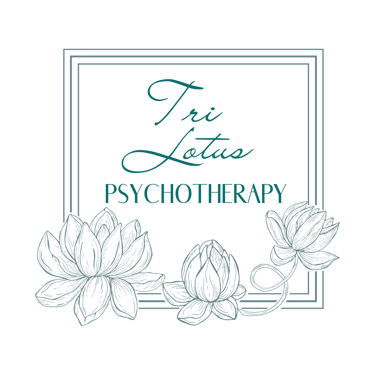NOW ACCEPTING NEW CLIENTS: In-Person in Calgary & Online across Alberta Book a Free 20min Introductory Call! CLIENT LOGIN
Guilt versus Shame: What's the Difference?
This blog post highlights the difference between guilt and shame and how to cope with them. It includes insights from Brene Brown's research on shame resilience and how psychotherapy can help.
FEEL YOUR FEELINGS
Kaylee Procter
1/31/2024


Defining Guilt and Shame
Before we explore the differences between guilt and shame, let's take a moment to understand what each of these emotions entails.
Guilt is an emotional response that arises when we believe we have done something wrong or violated our own moral code. It is often accompanied by feelings of remorse, regret, and a sense of personal responsibility for our actions. Guilt can serve as a healthy motivator for change and growth, as it prompts us to make amends, apologize, or take action to correct what we did.
On the other hand, shame is a deep-seated feeling of inadequacy or unworthiness. Unlike guilt, which focuses on our actions, shame targets our core sense of self. It is the belief that we are fundamentally flawed, defective, or undeserving of love and acceptance. Shame can be highly toxic and can lead to self-isolation, depression, and anxiety.
Brené Brown's Research on Shame
Brené Brown, a renowned research professor at the University of Houston, has dedicated much of her career to studying vulnerability, courage, empathy, and shame. Her groundbreaking research has shed light on the destructive power of shame and the importance of embracing vulnerability and self-compassion.
In her book, "Daring Greatly," Brown defines shame as "the intensely painful feeling or experience of believing that we are flawed and therefore unworthy of love and belonging." Through her research, she discovered that shame thrives in secrecy, silence, and judgment. It loses its power when we share our experiences and seek empathy and understanding.
One of the key findings from Brown's research is that shame is universal and can have a profound impact on our mental health and overall well-being. She found that shame-prone individuals are more likely to struggle with depression, anxiety, and relationship problems. By understanding shame and cultivating self-compassion, we can begin to break free from its grip and live more authentic and fulfilling lives.
The Difference between Guilt and Shame
Although guilt and shame are often used interchangeably, it is crucial to recognize their distinctions. Understanding these differences can help us navigate our emotions more effectively and develop healthier coping mechanisms.
1. Focus: Guilt focuses on our actions, while shame targets our identity. Guilt says, "I did something bad," whereas shame says, "I am bad." Guilt allows us to separate our actions from our self-worth, while shame attaches our worthiness to our actions.
2. Accountability: Guilt promotes accountability and growth. It encourages us to take responsibility for our actions, make amends, and learn from our mistakes. In contrast, shame often leads to self-blame, self-criticism, and a sense of unworthiness that hinders personal growth.
3. Connection: Guilt can lead to connection and repair in relationships. When we acknowledge our mistakes and take responsibility, we open the door for forgiveness and reconciliation. Shame, on the other hand, isolates us and prevents authentic connections, as it convinces us that we are unworthy of love and belonging.
4. Impact: Guilt can be a healthy and adaptive emotion when experienced in moderation. It helps us recognize our values, maintain social harmony, and make positive changes. Shame, however, is overwhelmingly negative and can have a detrimental impact on our mental health, self-esteem, and relationships.
Embracing Vulnerability and Cultivating Self-Compassion
Brené Brown's research emphasizes the importance of embracing vulnerability and cultivating self-compassion as antidotes to shame. By acknowledging our imperfections and sharing our experiences with trusted individuals, we can break free from the grip of shame and foster deeper connections.
Self-compassion involves treating ourselves with kindness, understanding, and acceptance, especially in moments of vulnerability and struggle. It requires us to recognize that we are all imperfect beings, deserving of love and compassion, regardless of our perceived flaws or mistakes.
How can psychotherapy help in coping with shame?
It can help develop greater self-awareness of when the "shame story" is present
It can help develop self-compassion to combat feelings of shame
It can help process childhood wounds, where shame may originate from
It can help create a safe space for shame to be heard, as "shame dies when stories are told in safe places" (Ann Voskamp).
As a licensed Calgary therapist, I have witnessed the transformative power of understanding and differentiating between guilt and shame in my clients' lives. By cultivating self-awareness, practicing self-compassion, and seeking support when needed, we can navigate the complexities of these emotions and lead more authentic, fulfilling lives.
In conclusion, guilt and shame are distinct emotions that can significantly impact our well-being. Understanding the differences between guilt and shame, as well as embracing vulnerability and self-compassion, can empower us to break free from the destructive cycle of shame and cultivate healthier relationships with ourselves and others.
Is shame something that you struggle with? I offer a complimentary introductory call to answer any questions you may have and discuss your counselling needs. You don't have to struggle alone and your suffering can be alleviated.
Guilt versus Shame: What's the Difference?
As human beings, we experience a wide range of emotions, and two of the most powerful and often misunderstood ones are guilt and shame. While these emotions are closely related, they have distinct differences that can significantly impact our mental and emotional well-being. In this article, we will delve into the disparity between guilt and shame, drawing insights from the research of renowned scholar Brené Brown, and explore how understanding these emotions can help us navigate through life with greater clarity and self-compassion.
Let's Connect
Please fill out the form to request an initial appointment
or complimentary introductory call
Contact
hello@trilotustherapy.com
Clinic Hours
Monday: 5:00pm to 8:00pm
Tuesday: 1:00pm to 8:00pm
Wednesday: 8:00am to 8:00pm
Thursday: 8:00am to 8:00pm
Friday: 11:30am to 4:30pm
Saturday: 9:00am to 3:00pm
Copyright © 2025 by Tri Lotus Psychotherapy - All Rights Reserved


Land Acknowledgment: I gratefully acknowledge and honour that where I live, work and play is within the traditional territories of the people of the Treaty 7 region in Southern Alberta, which includes the Blackfoot Confederacy (comprising the Siksika, Piikani, and Kainai First Nations) as well as the Tsuut’ina First Nation, and the Stoney Nakoda (including the Chiniki, Bearspaw, and Wesley First Nations); and Métis Nation of Alberta, Region 3. The traditional Blackfoot name of this place is “Mohkinstsis”, which is also known now as Calgary.

